So I have this ChangeNotifierProvider high in my widget tree as I am seeing many children widgets to listen to its value.
What I am currently doing is that I pass down the Provider.of(context) object from the parent widget into it's children via constructors whenever I am to reuse some values/functions on my children widgets. For example, everytime I create a Provider.of(context) object for my children widgets, it seems that it does not carry over the updated values I have on the Parent Provider but rather this one has my default null/0/'empty' ones like it has only been created. This lead me to pass down the initial Provider.of(context) object to each children that will use the updated values and functions of the ChangeNotifier.
This setup is working for me, however, when my Widget Tree has started being complex, I am constantly passing down values through each widget and to some that do not even use it at all just for its children to listen to the main provider.
I think what I may be doing now is anti-pattern of the Provider Architecture, I am hoping you guys can help me on a more optimized and efficient way of doing this.
Thank you very much!
P.S. There are some things in the documentation that I am not yet quite grasping properly.
Edits Below to include sample code and visualization:
provider_type.dart
class ProviderType extends ChangeNotifier{
String valueA = '';
String valueB = '';
}
home.dart
import ..provider_type.dart
...
Widget build(BuildContext context){
return ChangeNotifierProvider<ProviderType>(
create: (context) => ProviderType(),
child: ScreenColumn();
);
}
...
screen_column.dart
import ..screen_a.dart
import ..screen_b.dart
class ScreenColumn extends StatelessWidget{
Widget build(BuildContext context){
var providerType = Provider.of<ProviderType>(context);
return Column(
children: <Widget>[
ScreenA(providerType: providerType),
ScreenB(providerType: providerType),
],
);
}
}
screen_a.dart
class ScreenA extends StatelessWidget{
final ProviderType providerType;
ScreenA({this.providerType});
Widget build(BuildContext context){
return Text(
'${providerType.valueA}'
);
}
}
screen_b.dart
import ..screen_c.dart
class ScreenB extends StatelessWidget{
final ProviderType providerType;
ScreenB({this.providerType});
Widget build(BuildContext context){
return ScreenC(providerType: providerType);
}
}
screen_c.dart
class ScreenC extends StatelessWidget{
final ProviderType providerType;
ScreenB({this.providerType});
Widget build(BuildContext context){
return Column(
children: <Widget>[
Text(
'${providerType.valueA}'
)
Text(
'${providerType.valueB}'
)
Text(
'${providerType.valueC}'
)
]
);
}
}
Visualization
So what I am currently doing is to pass down the object providerType from ScreenColumn to Screens A, B, and C just so each of them have the same "Source of Values". Cause when I try to make different Provider.of objects and use them, they do not share the same updated values when I do some computation.
Is there something I can do to make this more efficient or is there a better way that I need to do?
